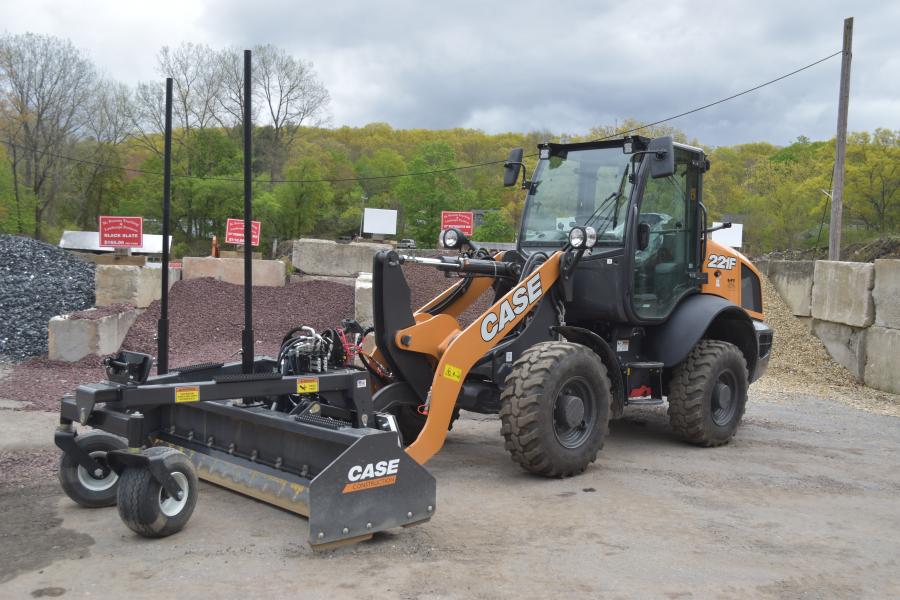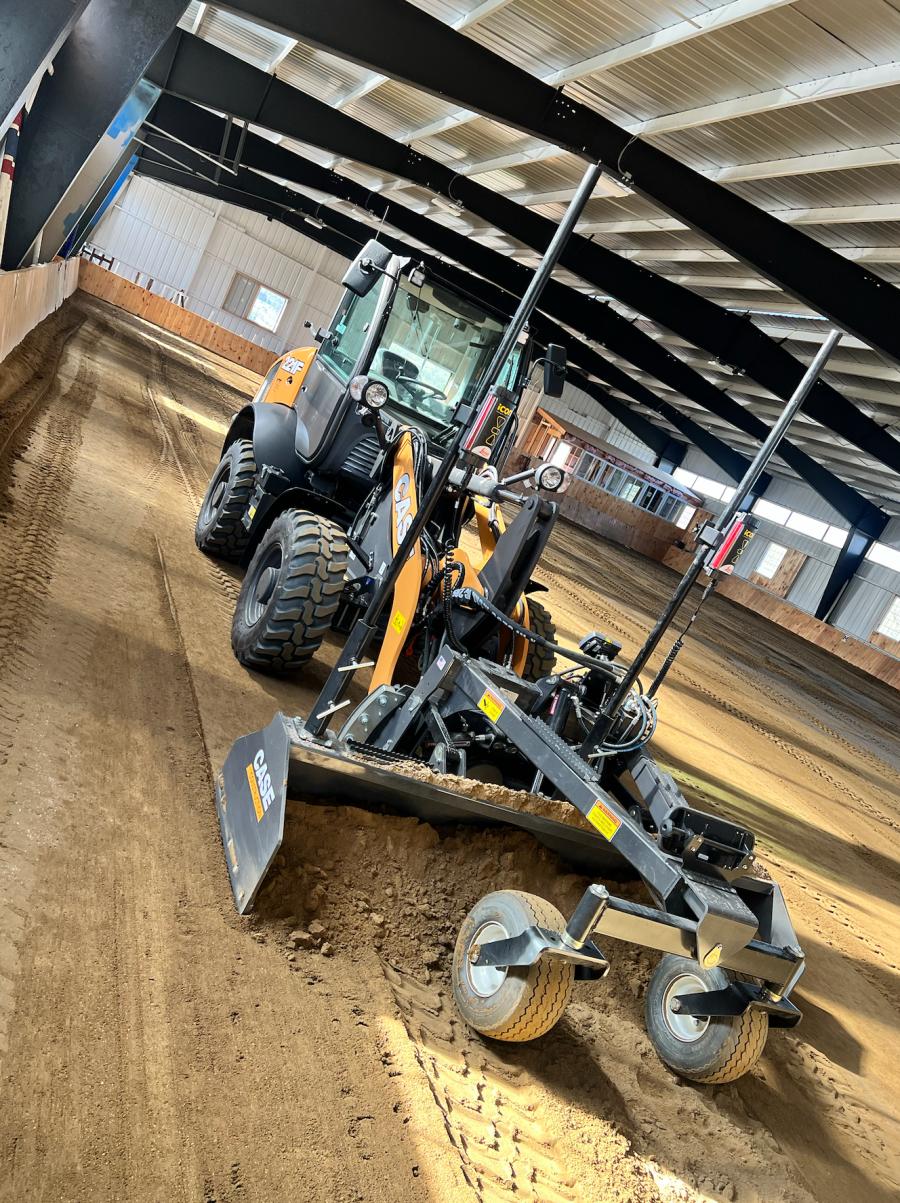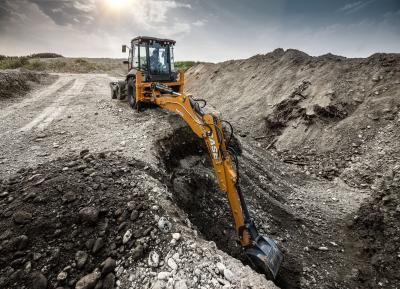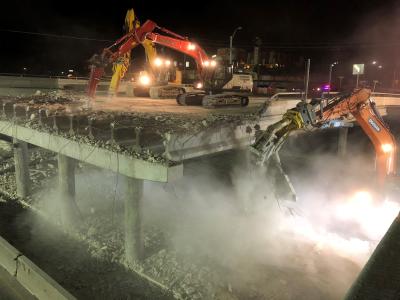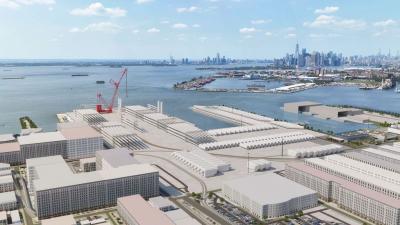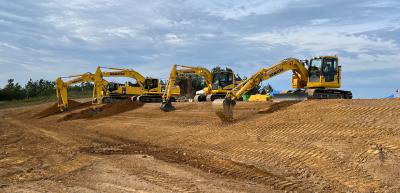M. Provost Truck & Landscaping Products’ Case 221F, paired with a Case grading box and Leica Geosystems grade control, is used primarily for horse-riding arena construction.
(CEG photo)
M. Provost Trucking & Landscaping Products was founded approximately 30 years ago by Mark Provost as a part-time gig to pick up some extra revenue. From its start, it was primarily a trucking company making deliveries every night after work until dark. The deliveries consisted of crushed stone, sand, compost and items of that nature that were being delivered to local landscapers and homeowners.
The company experienced steady growth and five years ago, Mark's son, Nicholas, joined the business. Property was purchased in Putnam, Conn., where materials and equipment could be stored on site, which also allowed the company to branch into retail sales, allowing customers to come to the facility for direct purchases.
The company also has expanded into material production, making products on site, including loam, structural fill, concrete sand and other basic products.
When Nicholas joined his father's company, opening a facility was not the only major expansion for the company. The decision also was made to diversify into site work and excavation. The company had always been involved in construction projects of some degree, but Nicholas had a vision to significantly grow that aspect of the company.
The company has three divisions: a trucking company, which has 18-wheelers on the road every day of the week; a retail yard with 37 different products for sale; and a site development division, which does building sites, road construction, and, over the past few years, has found a niche in the construction of horse arenas.
"The horse arena construction aspect of our company started several years ago when we tackled our first indoor arena in Woodstock, Conn.," said Nicholas. "We did all of the site work, a pole building was constructed, we handled all of the footings, land clearing, utilities and anything else that was needed. The customer was very impressed, and she shared the project on Facebook and from there that aspect of our business grew like wildfire. Within a year, we had built another dozen of them in New England, all of them by recommendation from satisfied customers."
The most critical and time-consuming aspect of a riding arena construction is the final grade work, Nicholas said. The surface and the grade need to be perfect, and, until recently, all of this was done with a dozer using the naked eye to find the grade and then going back with a laser to check for accuracy.
"The average size entry level arena usually measures 170 feet by 90 feet. Once the rough excavation has been completed and we start working on the final grade. Using the dozer, we would be looking at a day or two to achieve the final grade. Our typical process is to strip the topsoil, then bring in a 3-inch minus for a base, top it off with 5 inches of stone dust, and then finish it off with the desired amount of top footing which would typically be a sand of the owner's choice.
"I became aware of some new technology in grading equipment and did some research on the Internet in the hopes of being able to reduce the amount of time that this final grade work was taking. We contacted Scott Davis with Monroe Tractor, our local Case dealership."
After working with Davis to explore various options Nicholas and his father purchased a Case 221F wheel loader with a laser grading box equipped with Leica Geosystems laser technology with the idea that the grader box and wheel loader would give them a more accurate grade in fewer trips and dramatically save time.
The first test came very quickly with a massive riding arena, nearly twice the usual size at 250 by 150 ft.
"We quickly determined that Scott had pointed us in the right direction," Nicholas said. "I was able to remove all of the current footing down to the stone dust base in just over three hours, which would normally have taken 10 to 12 hours.
"If I had tackled the same project using our traditional approach, we would have used an excavator with a grading bucket because the dozer would have been too jumpy trying to get through the hard pack footing. The excavator would have been needed because constant hydraulic pressure is required to be able to scalp stone dust without cutting into it. Needless to say, the time and cost savings on this first project were phenomenal and we knew with confidence what direction we would be heading in the future."
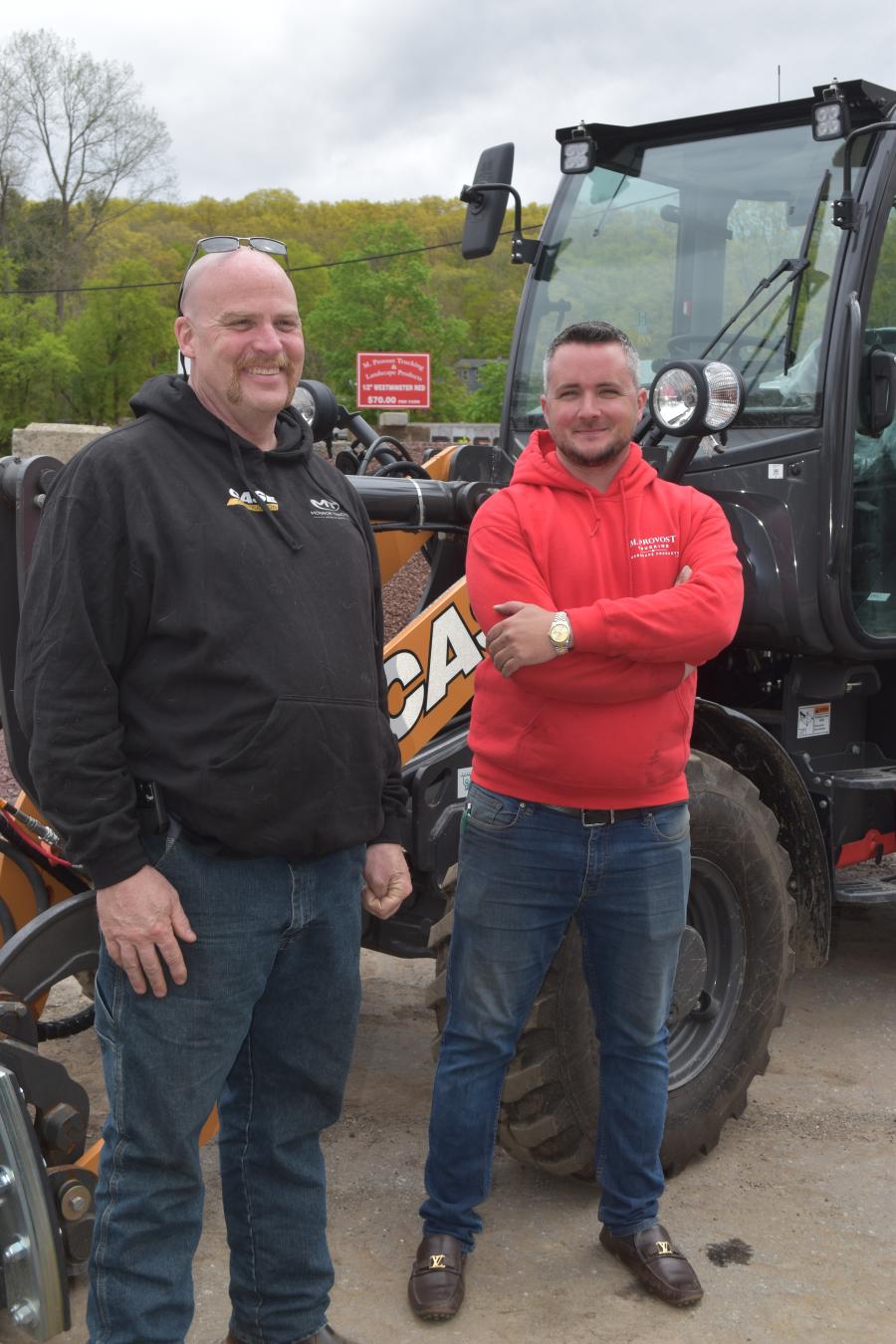
Scott Davis (L), sales representative of Monroe Tractor, and Nicholas Provost of M. Provost Trucking & Landscaping Products.
When asked about any previous experiences Nicholas may have had with Case equipment or Monroe Tractor he shared, "It's a funny thing. Since I was a little kid, I always liked Case equipment. I think it was something as simple as I just liked how they looked. So, when I was five years old, if you asked me what kind of construction equipment I liked, I would always say Case.
"A few years ago, we purchased a skid steer for moving materials around the yard, but it wasn't really the ideal application. That's when we first started working with Scott at Monroe Tractor. He recommended that we start using a Case 221 compact wheel loader for loading and unloading materials in the yard, which turned out to be far more practical than the skid steer. We were so pleased with the performance that in the winter we purchased a second Case 221 for snow removal.
"When we made the decision to start using a Case loader with a grader box for the horse arenas, we traded in both of our Case loaders to get brand new machines: a Case 221F to pair up with the grader box and a Case 321F to be used at the material yard."
One of the big reasons the Provosts like the Case 321F for a yard machine is its ability to have a skid steer plate instead of a standard coupler.
"The skid steer plate gives us the ability to drop down to a 1/2-yard bucket for a small load and easily switch back to a full-size bucket for a larger load in just a matter of a minute or two. So, we can use the same machine to fill a compact pickup truck that we would use to load an 18-wheeler. With that same machine I have enough reach [more than 13 feet] that I can load a tri-axle dump and easily do a full scroll down with the bucket and clear the truck body."
According to Nicholas, the overall experience with Case and Monroe Tractor has been very good.
"Monroe Tractor and Scott Davis have been there for us consistently over the years and have never left us hanging. For our application, the Case machines have been superior primarily because of the way the front boom is laid out and the amount of clearance that it gives us when we clean out under our screening plant. We are using Monroe Tractor for other needs besides our loaders. For instance, we just recently rented a screening plant from them, which made it possible to screen several thousand yards of material in one week."
Nicholas has a very positive outlook for the future of M. Provost Trucking & Landscape Products.
"We have averaged 200 percent growth for the last four years in a row and we look good to be able to maintain that."
When asked "what's the secret," Nicholas replied, "Seventeen-hour workdays."
For more information, visit www.monroetractor.com and https://m-provost-trucking-landscape-products.business.site. CEG
Today's top stories



